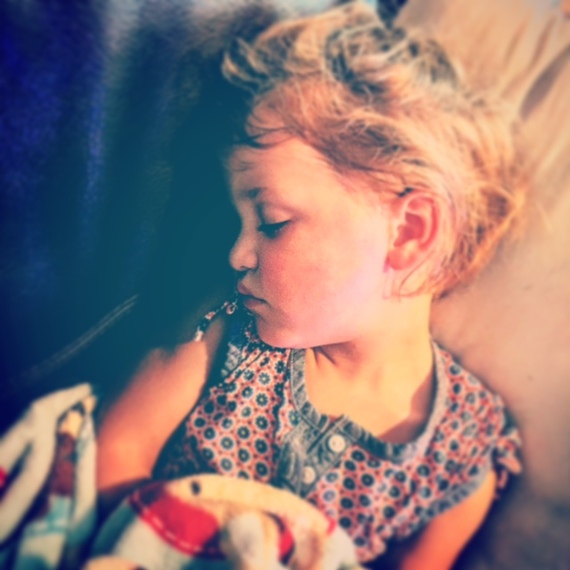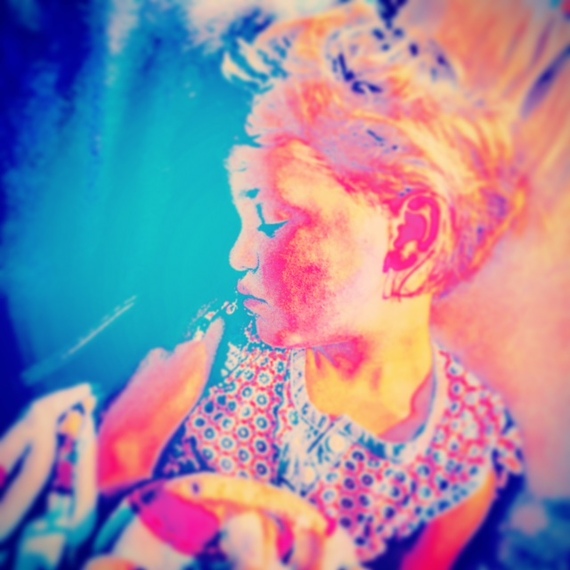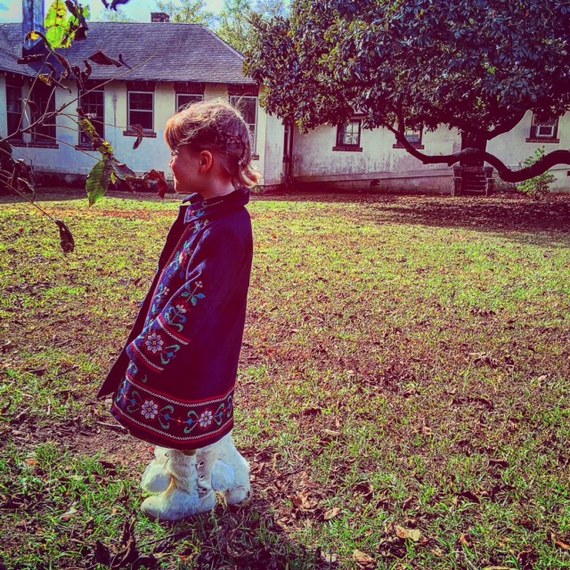Tragedy blinds us. In an Oedipus-to-Jocasta move, grief stabs out our senses, particularly our ability to see clearly. Slipping past initial shockwaves administered by loss, our sight is changed.
Grief is like a cataract clouding the eye. Even when we retain the ability to see, what and how we see is never the same.
Monet painted waterlilies in soft pastel hues reflective of his baseline functional vision. As he aged, cataracts covered his eyes. Monet's waterlilies took on altogether new properties of line and color. His wounds opened windows, new lenses through which he changed relationship to his environment. He literally saw things differently, and he expressed them differently, too.
Comparing two of Monet's paintings, we appreciate the beauty in each with equanimity. An earlier Monet is breathtaking in its sherbet petal detail and accurately represented greenness of grass. The golds and reds that pervade the landscape of Monet's later life are just as exquisite in their rich manifestation of the gardens where he walked and lived.
In a similar way, grief changes us because we retain precious little alternative. If we emerge from tragedy alive, we are not the same, nor can we return to anything static. Whether blinded, injured, maintaining a modicum of sightedness, through grief, we are not only inheritors of stored treasures left behind by the dead; we are also bestowed a complex gift to make sense of what it means to live our lives without the treasured person or persons we lost.
We, too, emerge with new lenses, new filters, mostly not of our choosing, mostly not of our liking. Grief presents us with options we dared never explore, as we had no need or want to before tragedy's deluge.
Death and loss are inevitable facts of a life well lived. We learn to make meaning of our grief if we intend to survive.
Grief cannot be done poorly. It should not be labeled with above-expectation accolades customary to self- or other-evaluation. We all wear grief differently. No one has a right to judge our grief, nor is there a predictive timeline, explaining what goals we should have and when we should meet them.
Like birthing and rearing children, ready or not, we do so without manuals of absolutes that apply themselves equilaterally, equidistantly. We may speculate, even prepare, but we cannot, will not know until we walk the plank. And we must walk it alone, even if and when others offer to meet us in our suffering. Ultimately, how, why and when we tread the bridge to other territory requires a motivated, coordinated cognitive and emotional effort to get up, take first steps, and figure it all out.
No one can show us. No one can do it for us. We are neither good nor bad relaters to grief. Grief just is, and it will be. It will always be.
Altered in alchemical space, we are newborns all over, abstract in assimilation that accommodates our developmental stairsteps, semantic to episodic. We survive by doing the immense tasks before, touching hot stoves and discovering where edges drop off in finality as we feel our way through dark, lonely, debilitating corners.
Hiking through this life, we burn trails with our own bare baby feet by rebirth in new experiencing, like it or not. Dying is a vital companion of living. We swim around spheres with eyes tuned to formation and awakening. We dog-paddle uncharted pathways to redefine our purpose along new contours. Putty and plastic, we expand, we shrink, we give in, we settle.
Searching to make sense of my own grief, I wrote this poem. I took a first step, whereby my grief spilled onto paper to bind to surface external. It softened me against resentment and fear, and, here, I started to let go of my loss. I stopped compartmentalizing tragedy and success, as healing sparked in integration of accepting all of my story, good, bad, gritty, ugly, embarrassing, divine, inexplicable, irreversible, finite and infinite.
Blind Contours
Monica Stevens-Kirby
Before you died, everyone appeared.
Some wore robes, and some were starched,
Before and after, and, for a time, not,
All was silver.
All was safe.
Uniforms in wings,
Waiting together.
Exposed in clothing,
Staring without looking,
Folding my heart in halves, in fractions, like doctors made you divide a sheet of paper to rule out dementia.
I watched you walk.
In bird wings, feather-light, you were blues and pinks and colors and gold.
You were mostly platinum by 11:00 p.m. when your halo appeared in the hospital mirror.
Hard to make out through alcohol swipes,
Pieces of charting, bleeding out ink,
Cleaning routinized on whiteboards bearing bold markings, Time of Death, and who was on call.
That was the night I lost my reflection.
Now at bedtime, I try on your wings.
I hope I will fly to meet you in my dreams, like I read about in texts on grief.
You sutured what was torn.
You fed me apples when I lay in your room.
You wrapped your arms about my legs.
My echo is trapped in a burial mound,
Native rites and sacred footfalls, bound in the magic of beginnings.
I practice calling between canyons.
I scrawl in hieroglyphs on Plato's caves.
Between day and night, sun and shadow, I send up flares.
In every place, I believe I hear you.
I lose myself, like a Chinese peasant, tireless in labor for the wonders of the world.
My bones break.
My voice stops.
I slide through slush.
I shift to stone.
I make myself a reservoir, baptismal fonts for holy places.
Remember how you painted me that day?
Our arms were woven.
Our eyes were closing.
We assumed the outlines of abstract movement,
Drawing each other in blind contours.
In tedious dance to love and know love,
You are in my contour.
I am in yours.


